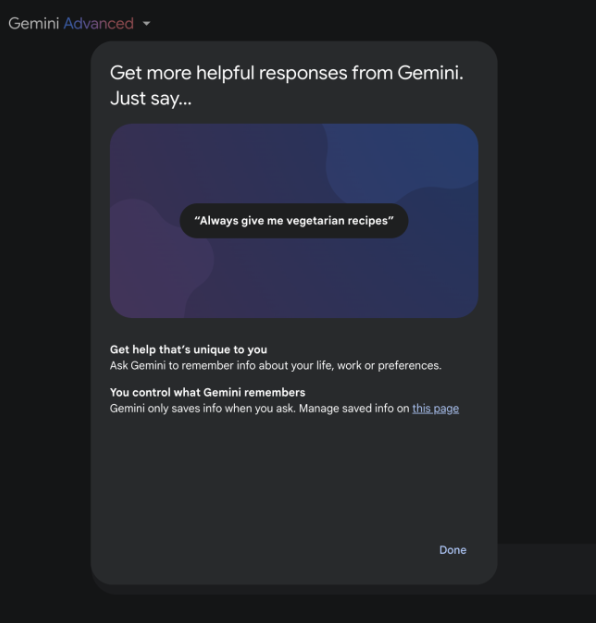Google Gemini AI chat robot has recently launched the highly anticipated "memory" function. This update allows Gemini to remember the user's personal information, work content and preferences, thereby providing more personalized and more effective services. But this feature is currently limited to Google One AI Premium subscribers ($ 20 per month), and only supports web pages and English input. The iOS and Android versions have not yet been launched. Although powerful, it also aroused concerns about data security and privacy protection.
Google's AI chat robot Gemini recently launched an important update- "Memory" function, allowing AI assistants to remember users' life information, work content and personal preferences, thereby providing a more personalized service experience.
This new feature is currently open to users who subscribe to the $ 20 Google One AI Premium program, and temporarily only support the web page. It has not yet been launched on iOS and Android applications. It is worth noting that only English input is currently supported.
Specifically, Gemini's memory function can help users realize a variety of practical scenarios. For example, when the user tells Gemini's favorite food, when asking the restaurant's recommendation next time, AI can provide more targeted suggestions according to the user's taste preference. Google also shows other practical examples in the interface, such as "using simple language to avoid professional terms", "I will only JavaScript programming", and "travel planning will include daily fees".

Google emphasizes that users can turn off the memory function at any time, but the stored memory content needs to be deleted manually to disappear. More importantly, the Google spokesman clearly stated that these memory information will not be used for model training and will not be shared with others.
However, the security of such memory functions is worthy of attention. Earlier this year, a security researcher found that hackers may implant "false" memory in ChatGPT, thereby continuously stealing user data. This discovery reminds us that the memory function of the AI system requires more stringent security protection measures.
The launch of this feature reflects the trend of the development of AI assistants towards a more personalized and intelligent direction, but it has also triggered the thinking of user privacy protection and data security. How to ensure user data security while providing convenience will be an important issue that AI service providers need to pay attention to.
Gemini's "memory" function undoubtedly improves the user experience, but its security and privacy protection issues still need to be further improved, which will be the challenge faced by Google and even the entire AI industry. Only under the premise of ensuring security can AI better serve humans.